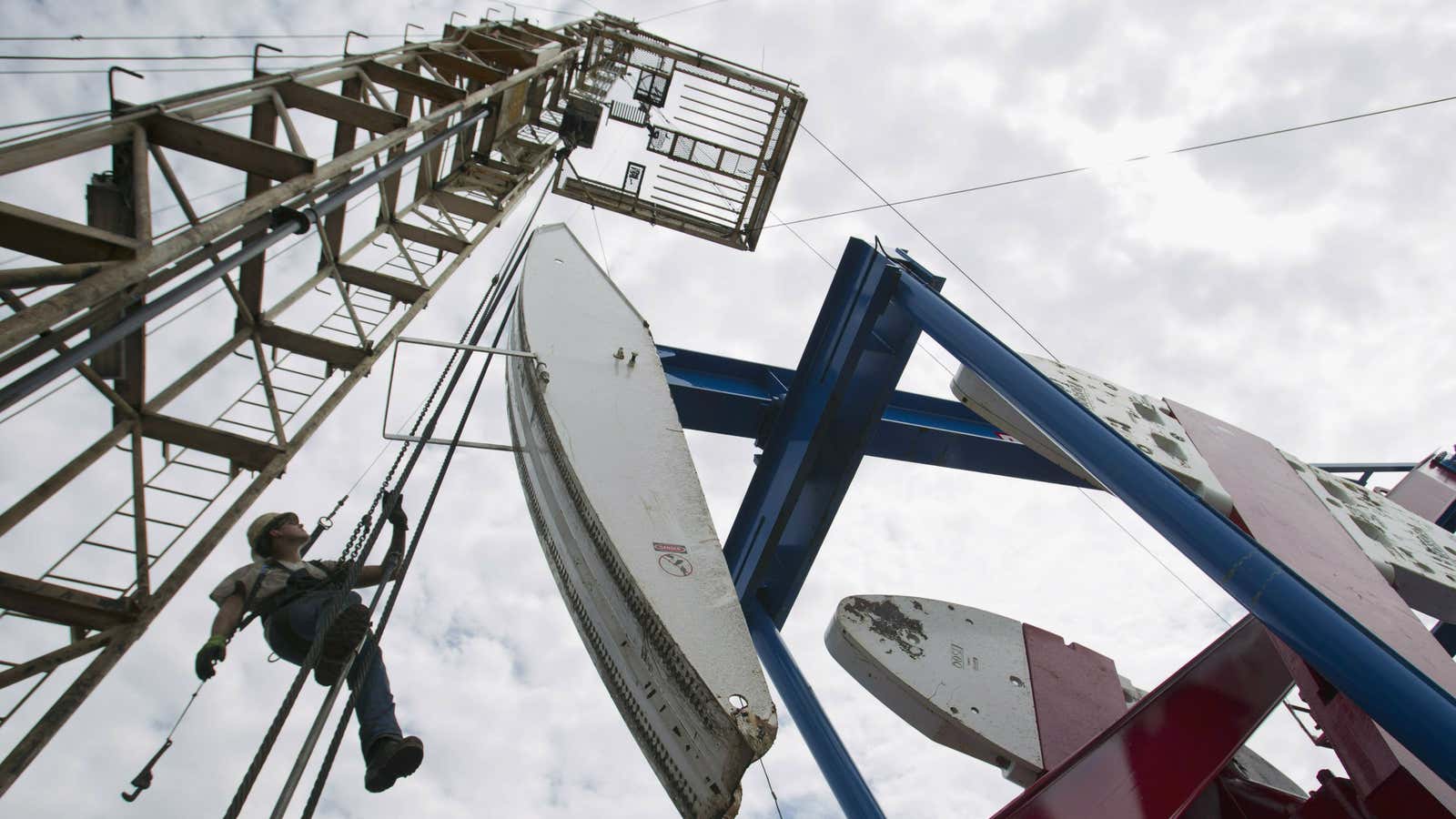Led by Saudi Arabia, OPEC has launched a price war on US shale oil, and some alarmed analysts say the fallout could create a crisis in the US banking and junk bond markets.
The surge of US shale, followed by OPEC’s decision not to restrict supply, continued to push down oil prices today: Brent crude was below $68 per barrel in European trading, more than 40% below the price in June.
The gusher of oil in the US has been caused by a convergence of two factors: hydraulic fracturing, the drilling method used to extract the oil from dense shale; and the junk-bond investors who have been willing to finance small drilling companies even though many of them lose money.
Junk-bond debt in the US energy sector has tripled to $210 billion since 2008, comprising about 17% per cent of the $1.3 trillion high-yield market, up from only 4% a decade ago. All that financing has helped US shale flood the global market over the last couple of years, reaching 4 million barrels a day in 2014, and causing the sharp downturn in oil prices.
Here’s the catch: The drop in prices will make it tougher for energy companies to pay off their newly minted junk bonds. The FT reported last week that a third of energy debt bonds are classified as distressed, meaning there is a high likelihood that will have to be restructured. Some investors in the riskiest forms of energy-related junk have seen their returns hammered to roughly zero (paywall).
As a result, some analysts say the markets could imminently shut off lending to shale oil drillers. Others say the junk bond market might collapse, in an echo of the real estate bubble of the mid-2000s.
So are we on the edge of a new financial crisis? Probably not quite yet. “It’s not as if everything is going belly up, and investors remain very hungry for yield,” Credit Suisse’s Jan Stuart told Quartz.
Indeed the low-interest-rate environment that has persisted since the financial crisis has helped coax investors to funnel their money to the high-yield, or junk bond, market, where so many drillers have financed their activities. Stuart suggests that this appetite for higher-yielding—read riskier—bonds will endure, making it relatively easy for even strained companies to refinance their debt.
Yet it depends on how long low oil prices—and pressure on energy sector debt—will last.
And if the financing really does dry up, that will have implications for everyone from US shale drillers to Wall Street financial institutions that shepherded their junk bonds to market, as well as regional banks providing mortgage loans to oil industry employees, and the state and local governments who’ve relied on energy for tax revenue in recent years. In other words, the verdict is still out on the American oil industry’s big bet on shale.
